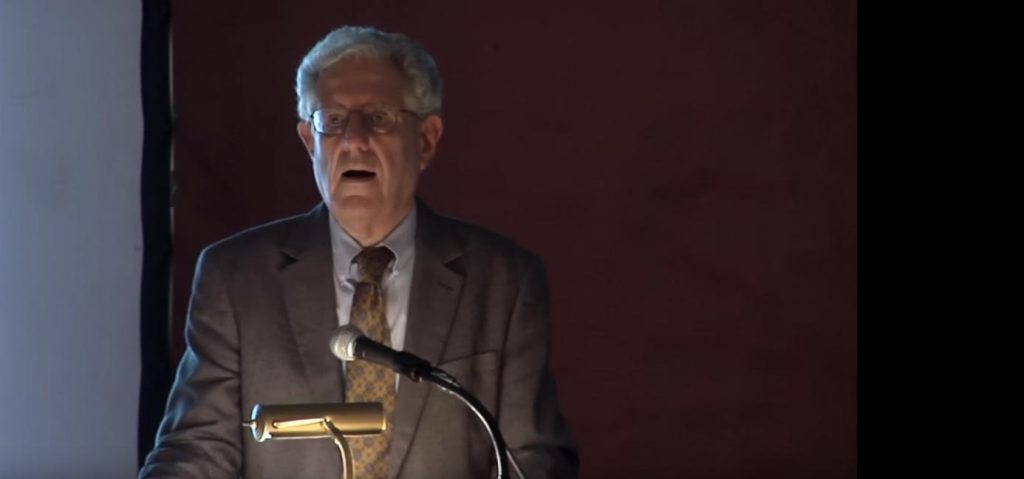“What we study is related to who we are,” said Prof. David Ruderman, Joseph Meyerhoff Professor of Modern Jewish History and formally Ella Darivoff Director of the Herbert D. Katz Center for Advanced Judaic Studies at the University of Pennsylvania, the 16th Annual CSP One Month Scholar. From January 3 to January 26, Prof. Ruderman presented “Jewish History, Jewish Thought: A Journey through Space and Time” at various Orange County and Long Beach locations.
Prof. Ruderman, who began his career working as a Renaissance historian, explained how the Renaissance was a “remarkable period of interaction between Jews and Christians.” It was also an exciting time when there was a “recovery of the ancient world in terms of culture and secular liberation, but still a religious age.”
Jewish scholars such as Maimonides, Rashi and Ibn Ezra were influenced by the Christian world, and Christians were fascinated by the Kabbalah. Some Christians saw rabbinic text as a way to prove Chrisitianity. All philosophers during the Renaissance had a universal notion of faith and interaction, with Christians and Jews sharing, Prof. Ruderman said.
“You have to look at the past to understand the present,” Prof. Ruderman said in his lecture about the Christian discovery of rabbis and the Mishnah in the 18th Century, during which time Christian Hebraicists discovered the rabbinic period and Jewish law. “There was a remarkable revival of interest in the Mishnah by both Jews and Christians,” he explained. It was translated into Latin and English with commentaries looking like pages of Talmud. Some Christians interpreted Christianity in terms of its Hebrew base while others wanted to prove that the New Testament could not be wrong.
Jewish-Christian debate was revived in 19th Century Europe, during which time missionaries were going all over the world to “bring enlightenment and culture.” Some were “dedicated to saving the Jewish people” and thought that people should observe Jewish law, believe in Jesus Christ and return to Israel. There were “mingled, braided identities that are neither Jewish nor Christian,” but Jews saw the excitement of the surrounding culture as relevant for their own world.
In his lecture about Amsterdam and the Converso community, Prof. Ruderman drew parallels between the Jews who came to the Netherlands and other places to take refuge from inquisitions in Spain and Portugal and modern Jews. Jews who came to Amsterdam had no knowledge of Judaism and wanted to reclaim it. The city was a “refuge of toleration” for many groups, and the Jews were a conspicuous minority who flourished and mingled with other groups. Conversos and other Jews had separate communities with separate trajectories.
“Modern Jews have better secular education than Jewish education,” Prof. Ruderman said. “They can separate and choose to be or not to be Jewish. Amsterdam was like that.”
The final lecture, “Jewish History and Jewish Memory: Reflections on History and Community,” exhorted participants to remember the past but to analyze, reflect and compare. “Memory is a transformative element of the past, and we can use it to better understand the present,” Prof. Ruderman concluded. “Scholars need the community to sanctify learning and reflect on it in terms of their own situation.”
The Orange County Jewish Community Scholar Program is celebrating its 16th year. It mission is to share the joy of Judaism, build community and celebrate our Jewish heritage with a rich adult education program and unique family experiences, according to Founder and Director Arie Katz.
For more information about CSP, please call (949) 682-4040 or visit www.occsp.org.

